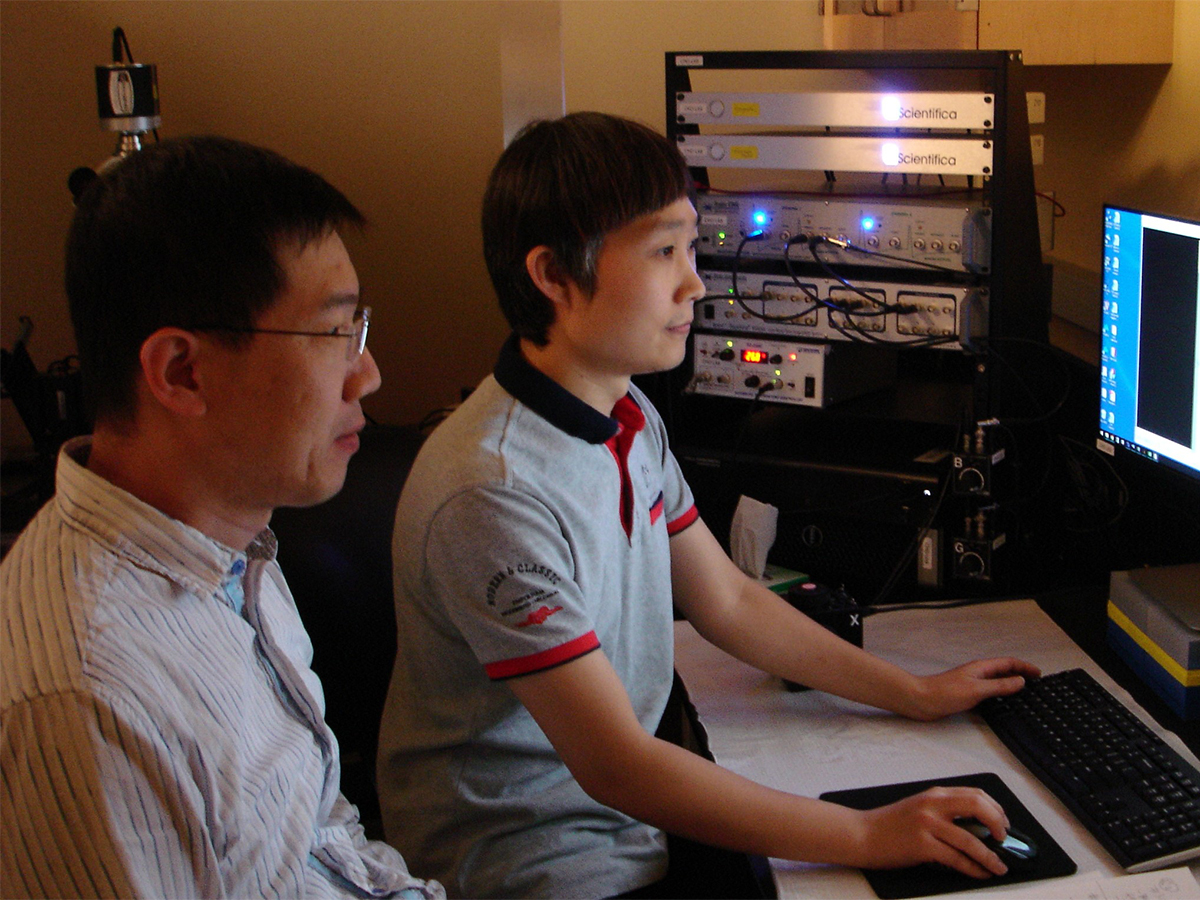
On May 10, Jun-Hyeong Cho, assistant professor of cell biology and neuroscience at UCR, and Woong Bin Kim, a postdoctoral researcher in Cho’s lab, published their study on fear memory in Journal of Neuroscience. Cho and Kim conducted studies on fear memory to understand how the brain interprets and remembers fear. They concluded that humans and animals develop adaptive fear responses to dangerous situations to survive. In addition, their research focused on the specific areas of the brain that are involved in fear memory.
Their study focused on understanding the mechanistic features of the double-projecting neurons that are sent out from the hippocampus to the amygdala and the medial prefrontal cortex (mPFC). “The hippocampus encodes context cues (the set of circumstances around an event), the amygdala stores associations between a context and an aversive event, and the mPFC signals whether a defensive response is appropriate in the present context,” Cho explained in an interview with the Highlander.
This study could help researchers learn more about fear-related conditions such as post-traumatic stress disorder (PTSD). According to the U.S. Department of Veterans Affairs, PTSD is “a mental health problem that some people develop after experiencing or witnessing a life-threatening event, like combat, a natural disaster, a car accident, or sexual assault.” Cho explained that around seven percent of Americans today suffer from PTSD, and this study proposes that it may be caused by a disruption in the natural fear-learning process.
To conduct their research, the pair used a tracing method in the brains of the mice to show the hippocampal neurons that project to different areas in the brain. The neurons are labeled with fluorescent proteins with different colors to show their movements throughout the brain. “We also found neural mechanisms (are) how these double-projecting neurons efficiently convey contextual information to the amygdala and mPFC to encode and retrieve fear memory for a context associated with an aversive event,” said Cho.
Cho has been an assistant professor in the cell biology and neuroscience department at UCR since 2014. Before coming to UCR, Cho was an instructor in psychiatry at Harvard Medical School from 2012-2014. Cho hopes that his continued research will uncover how the brain works in learning and fear.
Cho says that they want to continue researching about the effects of these neurons on individual’s fear memory. To do this, they will selectively silence the neurons and see how it impacts the formation of fear memory. Although the two researchers have published their work so far, they hope to continue research in this field in the future.








